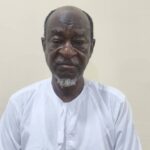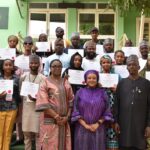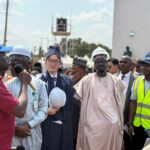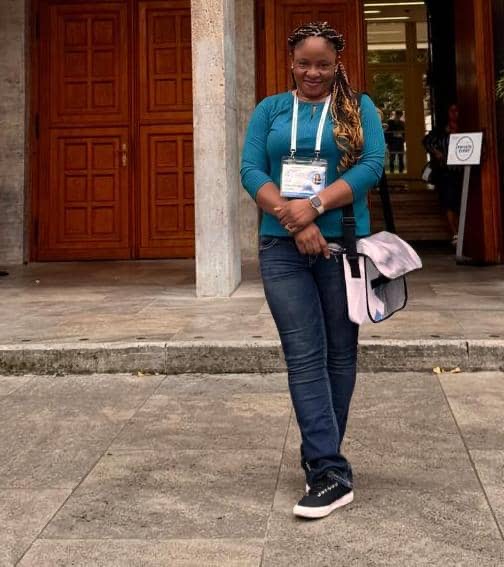By Ibukun Emiola
Dr Nwamaka Okafor, a Nigerian postdoctoral researcher at Argonne National Laboratory, U.S., has urged the Federal Government to embrace Artificial Intelligence (AI) and Internet of Things (IoT) technologies to boost agricultural productivity.
Okafor told the News Agency of Nigeria (NAN) in Heidelberg, Germany, on Monday that deploying smart and automated systems in farming would help the country tackle food insecurity.
According to her, it will also help in transition from a consumption-driven economy to a production-focused one.
Her presentation at the ongoing Heidelberg Laureate Forum was titled “Empowering Agriculture through IoT, AI and Citizen Science”, a project funded by the Heidelberg Laureate Forum Foundation and the Klaus Schirra Stiftung.
According to her, the project centred on the design and deployment of AI-enabled IoT devices for monitoring crop conditions in Nigeria.
“We trained students of Computer Science, Electrical/Electronic Engineering and Agricultural Science at the University of Port Harcourt and the Federal Polytechnic, Nekede.
“The idea was to combine academic training, local knowledge and technology to address a global challenge like food security,” she explained.
Okafor said the training, which lasted more than a month, also exposed farmers to the benefits of real-time data collection in improving traditional farming practices.
She added that many of the farmers were impressed by how automated systems could deliver better results compared to manual methods.
On government adoption of the innovation, Okafor said, “I think this is a fundamental way forward.
“Manual processes are very slow and not very productive, but when replaced with automated processes using technologies like AI and IoT, yield and efficiency increase.”
She, however, stressed that proper sensitisation would be crucial, as some farmers might initially be sceptical of the technologies.
Okafor also urged Nigerian researchers in agriculture, engineering and computer science to work together in developing home-grown solutions.
“When technology is built by the people who use it, it is more powerful.
“You know your story and your pain points, so you can design solutions that fit you best. It should be a collaborative effort,” she said. (NAN) (www.nannews.ng)
Edited Olawunmi Ashafa













This is beautiful and we are proud of how you are making us proud. Congratulations my sweetheart